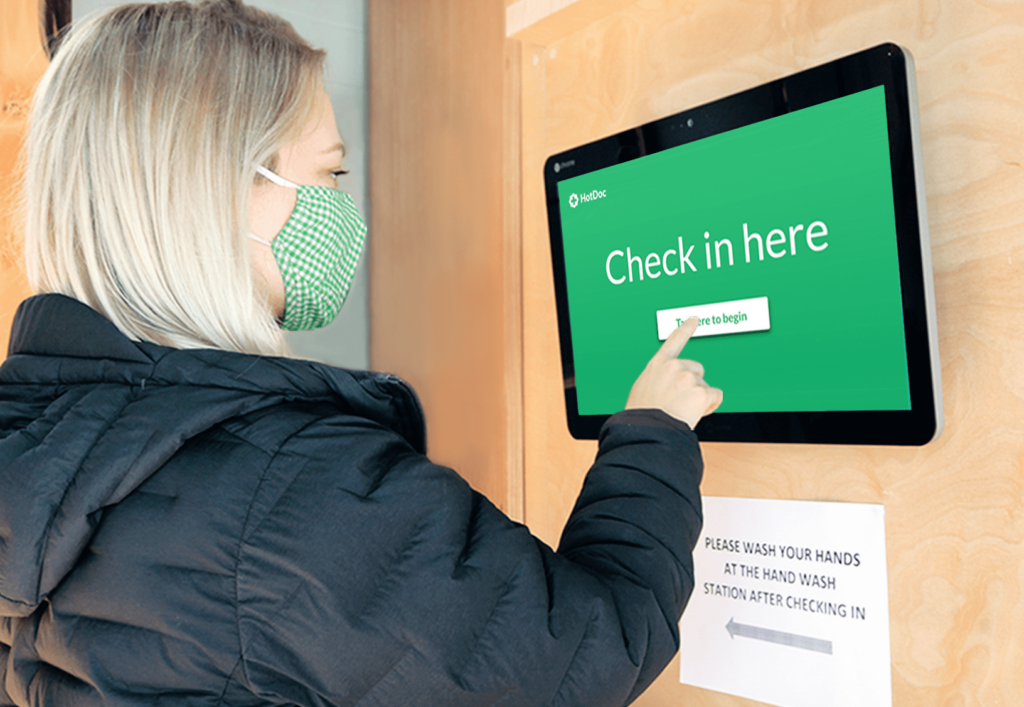We all know how important it is for doctors to communicate well with patients. When doctors are too light on information, patients feel left in the dark. Yet, when they are too detailed in their points, patients feel left behind. And then there is the manner in which doctors communicate. If they explain things too slowly, or oversimplify treatments, patients call them condescending. If they speed through ideas, or don’t give patients the opportunity to tell their story, they are often considered callous and uncaring.
But where exactly are doctors going wrong, and how can they improve the way they communicate with patients? Well, in the first of this what patients say series I put the question to patients themselves to find out what they like and don’t like about how doctors communicate, and how they believe such communication can be improved.
What traits do you look for most in a doctor?
A 53 year old woman from Western Australia kicked things off, describing, “[The most important thing would be] that they have time to listen to you, and that they explain what they’re thinking, or what needs to be done, instead of just writing you a script and saying, ‘Take that’. I like to know what’s going on”.
A 25 year old male who suffers from chronic asthma shared a similar view. “The most important trait is care… I usually get a lot of lung infections and throat problems – things related to my asthma. Rarely do doctors discuss options with me. The doctor pretty much says, ‘Antibiotics. Yep. Next’.”
A 31 year old woman who suffers from anemia explained, “[The most important thing would] definitely be empathy. I’ve had doctors that have said, ‘You’re not sick. You’re just tired and need to get more rest. Have you tried eating more meat?’ They don’t understand the process of 10 years of me not being diagnosed”.
Over and over again, the same answers surfaced. Patients wanted doctors to care and to listen. It was as though they all suffered from the same problem – they couldn’t find a doctor who cared enough.
Digging in more I asked patients to describe how their current doctor treated them. At least then I could unearth exactly how doctors were putting patients offside.
How do you rate your current doctor?
Based on the feedback I’d received about what patients look for most in a doctor, I was expecting all of the interviewees to say their current doctor could do more to care and to listen. After all, most respondents genuinely believed doctors weren’t doing enough. Yet, when they spoke of their current doctor, almost all changed their tune.
One male in his mid-twenties from Melbourne’s north, previously shared, “They don’t care. They don’t explain anything to you. They don’t educate me on ways to make me feel better or to stop it from happening again in the future”. Yet, when I asked him how his current doctor treated him, he immediately switched sides. “My new doctor suggested a preventer, which I’ve been taking most of winter, and that does wonders. I haven’t had a lung infection for the past three months”.
A middle aged woman who suffered from two chronic illnesses had a similar dilemma. She believed doctors across the board weren’t compassionate enough. And yet, when I asked her about her current doctor, she had nothing to offer but praise. “My current doctor, I’m very pleased with him. His main focus with me is helping me lose weight. He doesn’t harp on about it but he keeps me focused on the fact that it is a key element to everything else”.
Similarly, when I asked a man in his late sixties from Kellyville, New South Wales, the same question, he shared, “Very well actually. I can pick him now when he’s holding back. My wife, she’s a panic merchant, and he picked that. He said, would you like to see an ear, nose and throat specialist? He didn’t say she needed to. He just asked if she would like to. He’s very good like that. He’s very switched on”.
So, what was causing patients to say doctors needed to improve their communication when most were satisfied with their current GP? Perhaps, it was not the way doctors treated them, but rather the way they educated them. I put the question to patients.
How well does your doctor educate you?
One male in his early fifties, bluntly described, “I think it’s a little condescending to be honest. In general there is no discussion”. A similar aged male, who had worked as a pathologist before getting sick and retiring in his fifties, shared similar frustrations. “Well, since I’ve worked in pathology for years and years and years, I find it rather concerning. I don’t know if other people are relying on their GP to read their minds. I’m just a bit concerned about these bulk billing places where it’s just a numbers game and the needs of patients are really not being addressed”.
Yet, again, when I asked him to dig deeper and talk about how his own doctor educated him, his tone switched. “The doctor I’ve been going to for years will point me to various government websites. He listens. He acts. He does his correspondence quickly.”
A woman in her early thirties, who suffered from anemia, shared a similar position. When answering the first question – what trait do you look for most in a doctor – she shared, “I’d like them to communicate with me in a way that I’m not going to get frustrated because they’re telling me to try things I’ve already tried. And also, I want them to tell me what to do in a compassionate way. Not just… do this, it’s the right thing when it’s not”.
And yet, again, when I asked how her current doctor educated her, she flipped her position. “My main doctor will go through and say, well this month here’s what your iron is etc. And, he’ll tell me, this one is getting better but this one is dropping. And, if I say, what’s haemoglobin? He’ll say, this is what it is and this is why it’s dropped this month… Whereas other doctors have been like, it’s better this month, or it’s worse this month without actually explaining it”.
Over and over again patients flipped from one side to the other. It was as though each of them saw their doctor and other doctors as two completely different species. The more I talked to those patients who had switched their views, the more clear it became that in almost all cases it was one or two bad events that had forever muddied their perceptions of doctors.
One middle aged woman from New South Wales made this more than clear, describing, “I don’t like doctors who make a lot of assumptions and send me down the wrong path. I learned that the hard way. I had plantar fasciitis and he sent me for a treatment that would have been an end stage treatment. You know? You try all the other things first then you get cortisone shots in the heel. The first treatment he sent me to was the cortisone shots because he didn’t listen… It hurt like hell. I was very angry”. I could see how this one experience had tainted her overall perception of doctors.
In an effort to spin things a little more positively, I ended my interviews by asking patients how they believe doctors could better improve the way they communicated with patients.
How can doctors improve their communication?
A 69 year old man who was recovering from a battle with cancer, explained, “For me, I have cancer and they say, ‘Righto, I want you to go and see [the specialist] because your PSAs have gone up’. So, I went to see this bloke and the next thing I’m on the table removing this cancer. But the problem I found is that they don’t explain to you, once you have those surgeries, what to expect to feel while you’re recovering over the coming months… you need someone to say, ‘You’re going to have this surgery. In the first week you’re going to feel this. Second week. Third week. Tenth week. 12 months. Whatever’… Disappointingly I found out there is a procedure where you don’t have to have the cancer removed… I just think they could do a lot more in explaining things to you and giving you other options, rather than their preferred option”
A 72 year old woman, suffering from osteoporosis, shifted the onus to patients. “What I’ve found is that it’s not always up to the doctor. It’s up to the patient to talk to the doctor and ask questions. If you go in there with some sort of neck pain and the doctor says, how are you today? You’ve got to be specific. Then, if he responds wrongly you say, ‘No this isn’t what I said’”.
She had hit the bullseye. Clearly a lot of the patients I had spoken to had forgotten this small detail – that a doctor’s consultation was not a one way street. It was not just up to doctors to explain things right the first time, but also up to patients to pull them up when they fell behind or felt left in the dark. Still, this wasn’t the biggest takeaway.
The Takeaway
The biggest takeaway was that, whilst most respondents believed doctors needed to do more to improve the way they treated and communicated with patients, almost all were satisfied with their current doctor. It showed me just how much of an impression a bad experience could make on a person, especially when their health was in jeopardy.
It wasn’t that patients weren’t having good experiences with their doctors. The problem was that these positive experiences didn’t jump to mind until after they had vented their frustrations. It made it strikingly obvious just how much these patients were bottling up those things that annoyed them. There wasn’t a place they could talk about their bad experiences and so they hung onto them.
I wondered how many of them would change their views if they just had a doctor who took the time to ask, ‘Have you had a bad experience with doctors in the past?’ Or, ‘Is there anything frustrating you about the way I communicate with you?’ After all, they all said the same thing when describing their perfect doctor – someone who took the time to listen and who truly cared.



